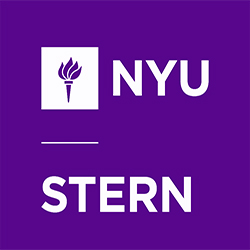Hello again,
Now it’s time for the exciting conclusion to last week’s post on core courses, and how they may help with careers in consulting. I’ll start with the three classes that you can take in either your first or second semester, and finish with the two spring semester courses.
5. Foundations of Finance
This is our core finance course, which gives students an understanding in general of how different aspects of finance work. This includes time value of money, arbitrage, bond pricing, options pricing, and much more. In many of the case interviews I’ve done, I’ve needed to calculate perpetuity value or NPV of an investment, and I would have been completely unable to do that without having taken a finance class.
Interesting follow up courses: Futures and Options, Restructuring
6. Marketing
Clearly, this is our core marketing course. The class relies heavily on in-class discussion of the different facets of marketing, and uses a few handy frameworks (3 Cs, 4 Ps, BCG Matrix) to bring some rigor to the subject. One big bonus of taking this class is that you do in fact learn and use the frameworks, which can be very helpful when doing case interviews. I know I used the 3 Cs a good amount, and two-by-two frameworks like the BCG matrix came up quite a few times. It also helps give you a customer focus that you may not get from other classes, and can help you understand whether the recommendations you are giving will actually create value for customers, which I hear is important.
Interesting follow up courses: Brand Strategy, Competitive Strategy in the Marketplace
7. Competitive Advantage from Operations
This course is focused on giving students an overview of the different aspects of the operations of businesses. We learned everything from inventory management to queueing theory to project management to process diagramming – lots and lots of stuff that management consultants use on a regular basis. Many of the topics we discussed were things that I had actually used and had been exposed to prior to business school when I was a consultant, and having the theoretical understanding to complement the experience I had really rounded out my ability to deal with operational issues with clients.
Interesting follow up courses: Decision Models, Operations in Panama
8. Leadership in Organizations
This class helps students understand many of the interpersonal aspects of working in companies, like how to deal with internal politics, manage change, give feedback, and lead a company through growth. While most other core classes focus on “hard skills” (stats, finance, etc.), this class gives student a chance to work on their soft skills. It’s also a pre-requisite for a number of great courses in management and leadership. As a consultant, many of these skills are what make consultants really strong in the “client service” aspect of consulting. Remember, it’s not all about just doing great analysis – being a consultant is also about how you work with teams, give feedback to your colleagues, understand the organizational dynamics of your clients, and more. This class helps with that side of things.
Interesting follow up courses: Power and Politics in Organizations, Managing Change
9. Global Economy
This class serves as the introduction to macroeconomics that many students look for in business school. The course addresses topics like GDP, aggregate supply and demand, monetary policy, the interplay between interest rates and inflation, and much more. As a consultant, you will likely serve large multinational and global companies. These firms can be greatly affected by shifts in exchange rates, changing global demographics, and domestic and international monetary policy. Having a solid grasp on these topics will allow you to think on the big picture level for your clients and help them deal with questions that have a far-reaching impact on them.
Interesting follow up courses: Growth in the Developing World, Global Poverty Alleviation
I’ve really enjoyed writing this blog, but this will be my last post, as I have recently graduated. Best of luck to all of the prospective students out there, especially our newest admits who will be starting in the fall.
